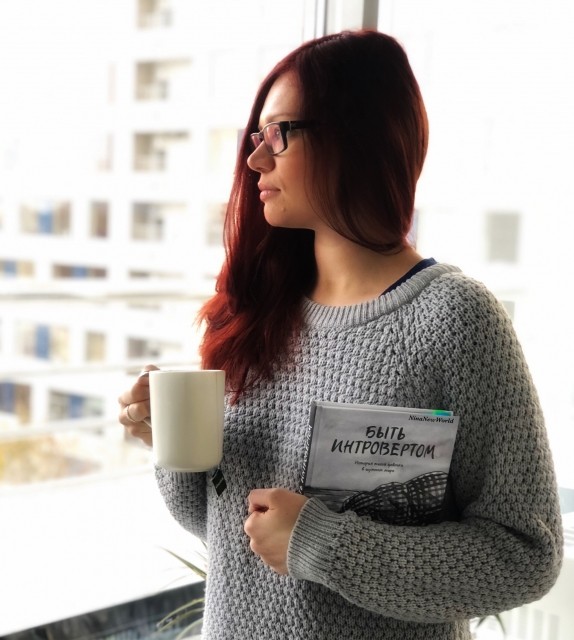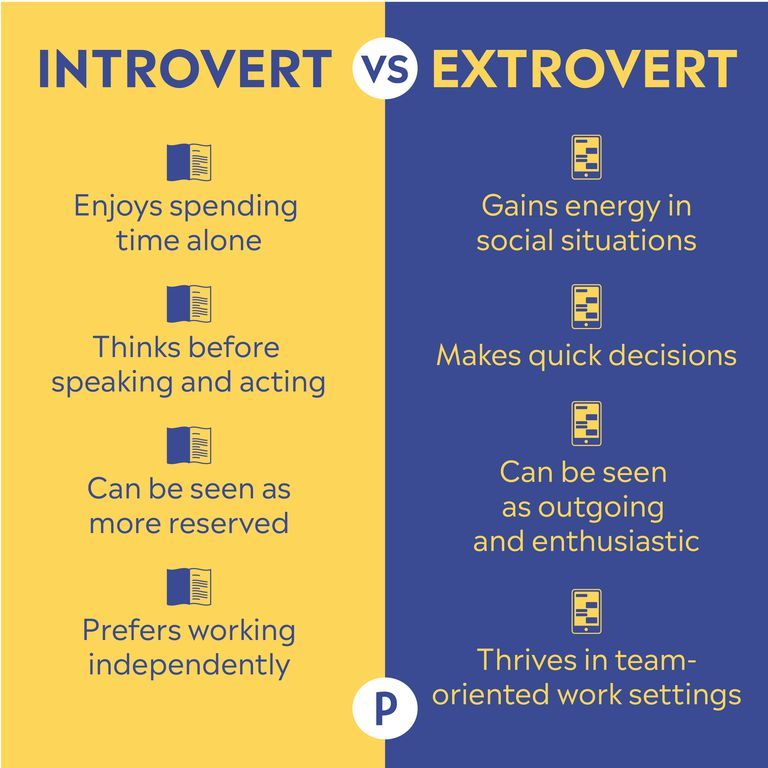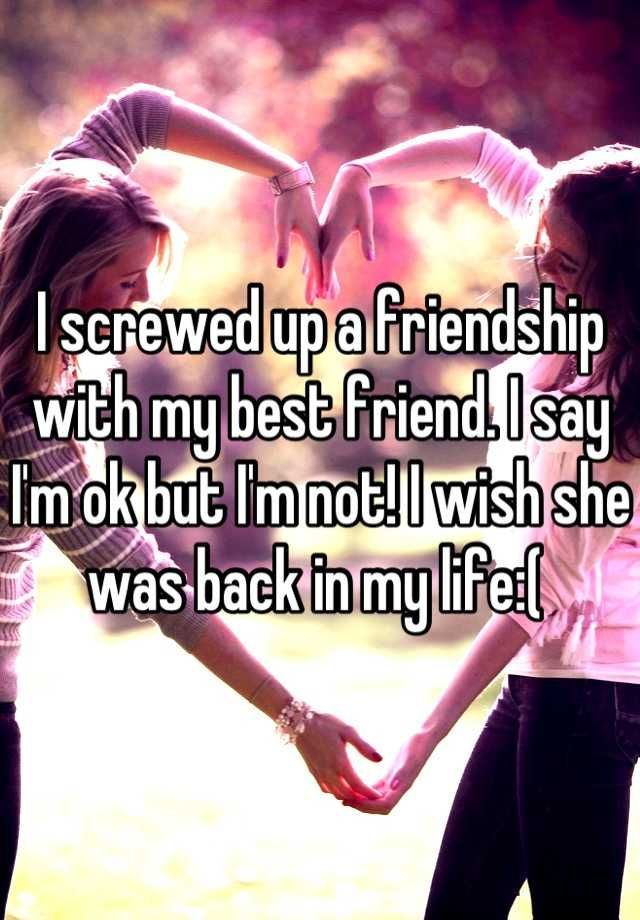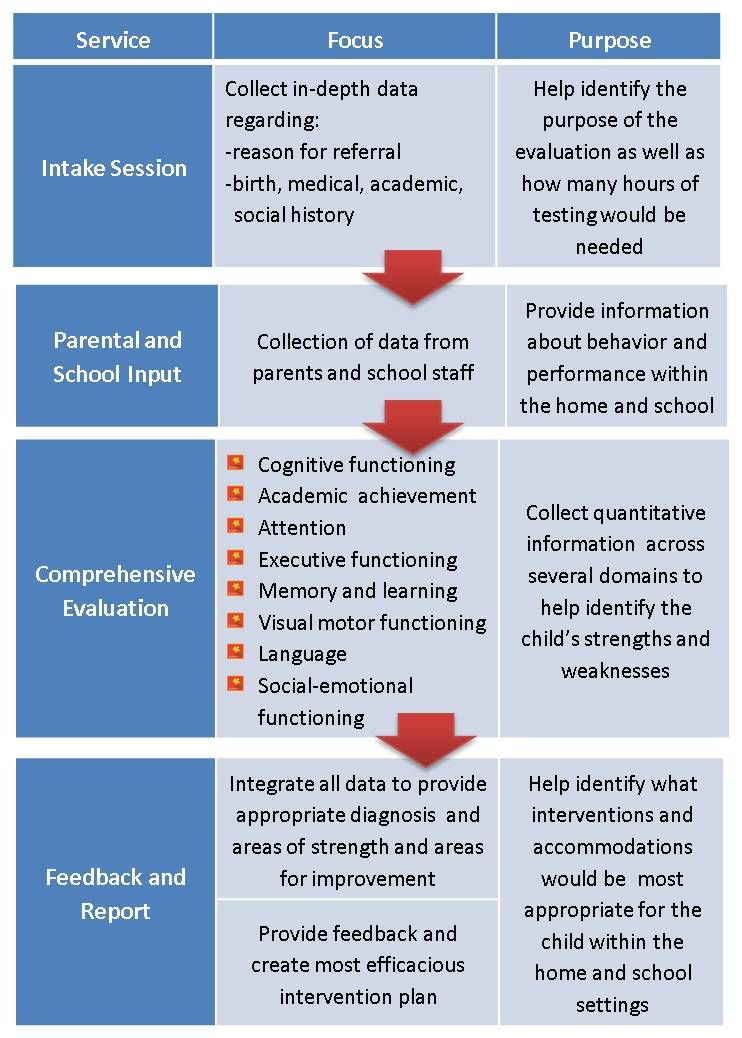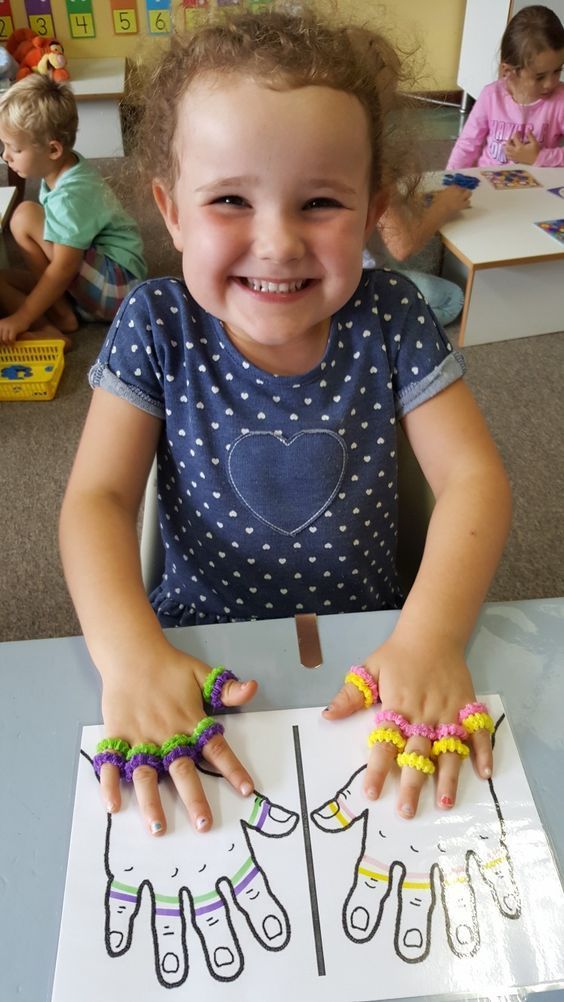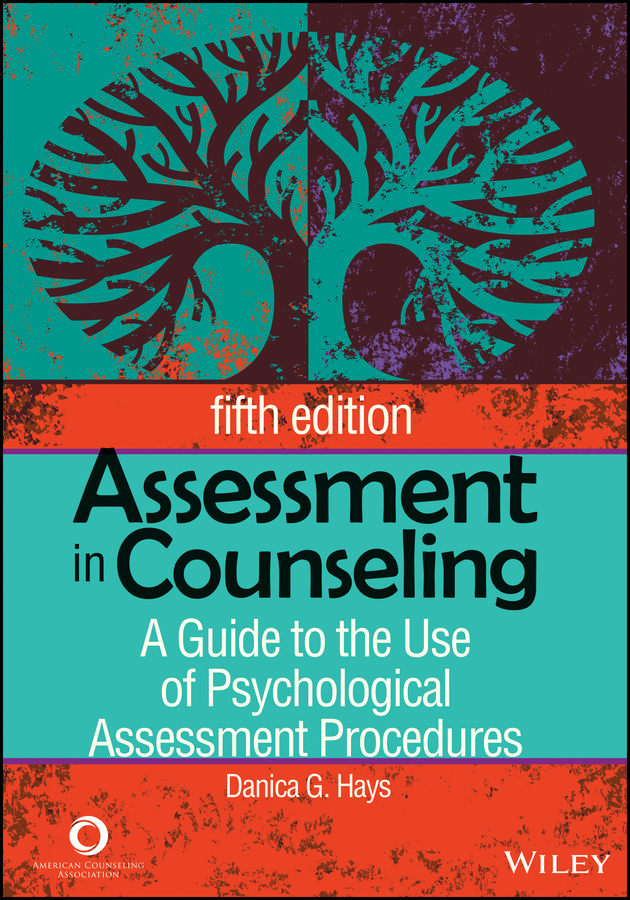Social media is not real life
Social media is not real life
I overheard a conversation yesterday…
It went a little like this:
Girl: I’m agitated because I sent you a friend request on social media and you didn’t accept it.
Guy: Right.
Girl: And you didn’t have to accept it, but you didn’t decline either and just left me hanging. And that says a lot about you.
Guy: How so?
Girl: How you act on social media is how you are in real life. You have poor communication.
Guy: That account on social media, it’s my space, and I have every right to accept people or not as I’m comfortable with.
Girl: Well, if you didn’t want to accept me you should have sent me a text message saying so.
Guy: *dumbfounded look*
Is social media truly representative of real life?
In my view? No. It isn’t.
Social media is not real life. It’s one-dimensional. There’s no depth to it.
Social media is a click, a like or an image of avocado on toast with a filter and people seem to hang themselves on receiving hearts or accepting friend requests.
Social media is meticulously curated.
In real life, you have tone, light, and shade.
Real life is raw and imperfect.
I’ve met influencers in real life who were completely different to how they came across on social media.
Some of them were very “out there” and in person were wayyyy reserved.
Some of them seemed sweet and in person were vain and obnoxious.
Heck, if you met me in person you’d probably think I was an utter weirdo compared to how I appear in my videos.
And I don’t apologise for that.
Social media is not all-encompassing, and if you put all of your self-worth and validation in social media, you’ll be miserable.
Guaranteed.
Social media is a tool, yes. And that’s where we need to draw a line in the sand and realise that we can use social media to share and connect and grow our businesses.
But at the end of the day, social media isn’t who we are.
You are not your likes, tweets, views or reshares.
This week I’ve started releasing a series of Pinterest business tutorials.
Because Pinterest is a cool tool (hey…that rhymes!)…
You can use Pinterest to share your content and leverage its incredible reach and discover fantastic resources.
Check out the Pinterest Tutorial Playlist below. I’ll be dropping more Pinterest videos over the next week.
Sara
- Author
- Recent Posts
Sara Nguyen
Video and Course Creator | Online Marketing Strategist | Wine Lover | Coffee Addict | Geeky techy lady| 😀 Helping small businesses build and grow their business using social media with ease.
Latest posts by Sara Nguyen (see all)
by
Social Media Is Not Real Life, But That's Not the Problem
- Copy by: Daryl Lindsey
This week, an 18-year-old Instagram celebrity from Australia blew up the internet.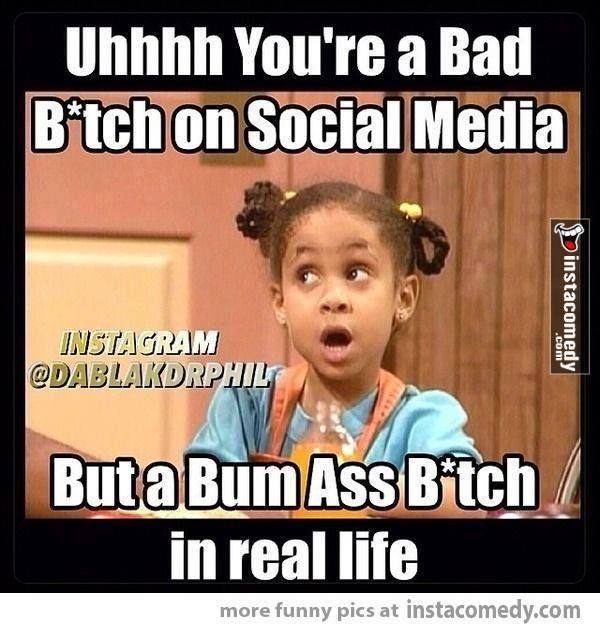 Essena O’Neill, a young woman who had built a career for herself by posting glamorous photos to social networks, announced to her half a million Instagram followers that she was quitting.
Essena O’Neill, a young woman who had built a career for herself by posting glamorous photos to social networks, announced to her half a million Instagram followers that she was quitting.
Done. Finished. Gone. Social media, O’Neill said, does not reflect reality.
Before deactivating her Instagram, Tumblr, YouTube, and Snapchat accounts, O’Neill changed the captions on each of her photos to reflect the way she says she really felt when they were taken.
“Took over 100 in similar poses trying to make my stomach look good,” wrote O’Neill, next to a photo of her posing in a bikini on the beach. “Would have hardly eaten that day.”
Her declaration flooded the web, ringing loud and clear: “SOCIAL MEDIA IS NOT REAL LIFE.”
The concept of faking a “perfect” life on social media has been around almost as long as social media itself.
The concept of faking a “perfect” life on social media has been around almost as long as social media itself.
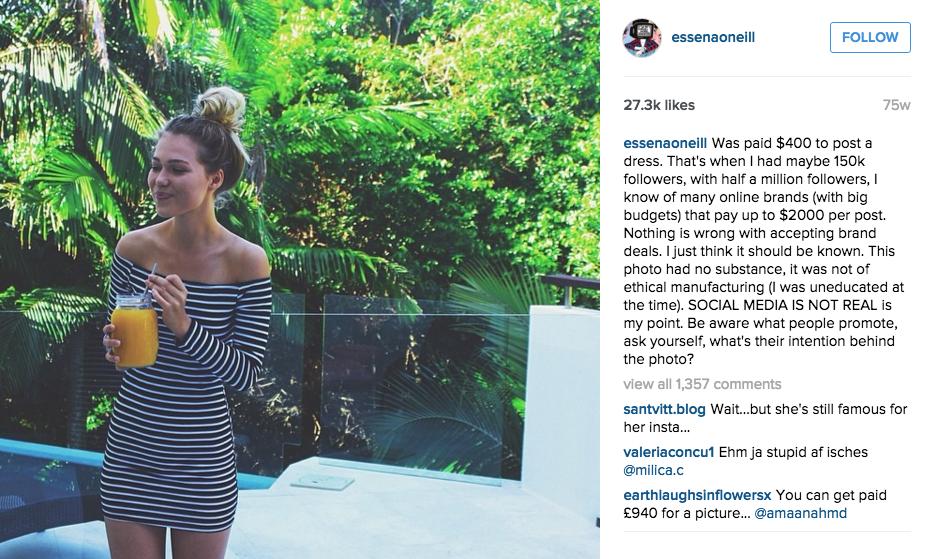
“Comparison is the thief of joy!,” cried basically the entire blogosphere way back in 2010, when we were still uploading outfit photos and DIY tutorials to blogspot accounts.
And yet, no matter how hard we tried, no matter how much we lamented the inauthenticity of our online selves, the curated and edited content just kept on coming.
The truth is we all wish our online selves were our authentic selves, and we’re good at pretending they are.
Parody Instagram account @SocalityBarbie does a good (and hilarious) job of satirizing the way we all hope to live “authentic” lives in the most beautiful, well-photographed way possible.
“Could I be any more authentic?I” The caption reads, next to a photo of the Barbie doll posing in front of the famous Vance Creek Bridge.
If Socality Barbie were a real person, she’d understand, just as O’Neill did, that truly authentic, unstaged moments are priceless and special and important, but they don’t get you Instagram likes. (SIDE NOTE: Socality Barbie is also quitting instagram. )
(SIDE NOTE: Socality Barbie is also quitting instagram. )
For an article I wrote a few months ago, I tried out a new social media app called BEME. BEME was supposed to be the “authentic” social platform, set up in a way that would prevent users from curating content or creating “fake” versions of their lives.
Do you want the honest truth? I got bored using it, and I got bored fast. So did most everyone else, apparently, because the app never really made it off the ground.
Most of the Instagram accounts I follow are curated, barring the ones that belong to a few close friends. I follow photographers, food bloggers, and fashionistas who all post gorgeous, interesting content that inspires my creative side (or simply entertains me when I should be working.)
So no, social media is not real life, but the fact that it’s fake isn’t the problem.
The problem lies not in WHAT we post, but in WHY.
In a video explaining her decision to deactivate her accounts (which has since been deleted), O’Neil admitted that growing up on social media (she started when she was 12) had made her extremely depressed.
At one particularly poignant moment, she displayed a photo she’d posted of herself holding up her shirt to show off her flat stomach. O’Neill said the only moment she’d felt happiness that day was when she’d posted that photo.
She is, essentially, a child. And she’s been taught her whole life that a little “heart” button defines her self worth.
We now live in a world of instant sharing, and that world has created a culture in which all of our self-love comes from the affirmations of others instead of from somewhere within ourselves.
Connected as we are, we never have to be alone.
Self-esteem starts inside and radiates outward, not the other way around.
There won’t ever need to be a moment where we look at ourselves long and hard in the mirror and say “this is it.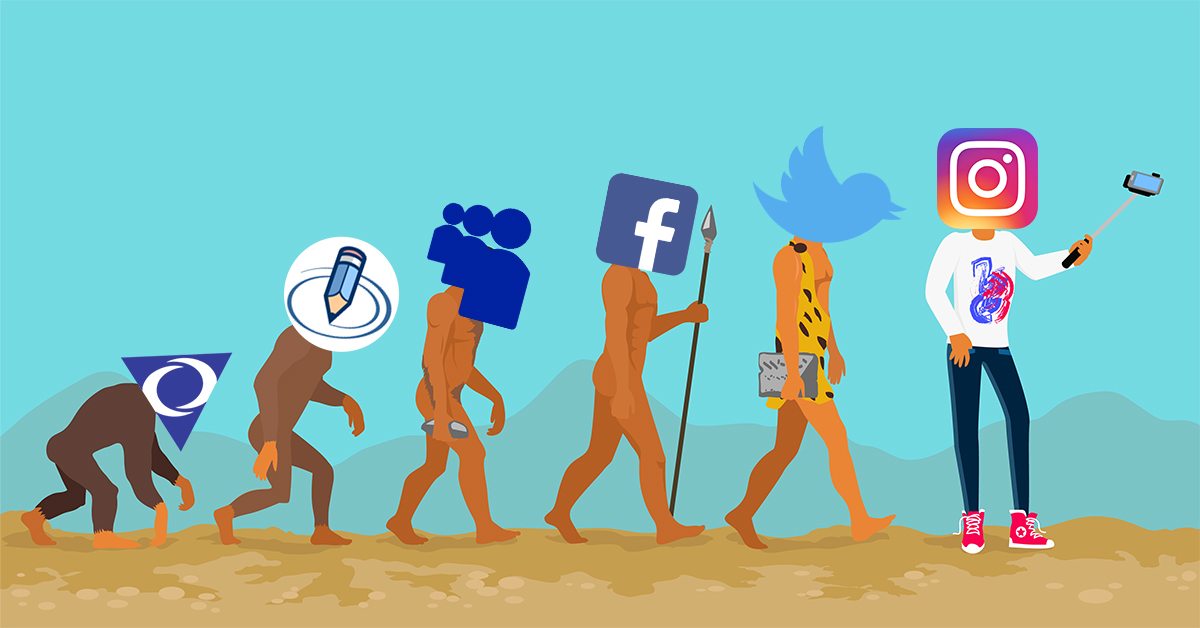 This is who I really am,” and decide for ourselves whether or not we like the person we see.
This is who I really am,” and decide for ourselves whether or not we like the person we see.
There’s no need for that any more; A handy device in our pocket can quantify just how loved and wanted and valued we are, one like at a time.
If we acknowledge that social media is not real, we can begin to disconnect what we see online with real-life expectations. We can separate social media from our sense of self-worth.
I applaud Essena O’Neill for choosing her own mental and physical well-being over the approval of strangers. I thank her for reminding us that self-esteem starts inside and radiates outward, not the other way around.
It’s OK that social media is not real life. It’s OK that it’s a fictional world made of Prada bags and avocado-on-toast.
Just remember that self-love doesn’t come from that world. It comes from the real one.
The real you.
On her new blog Let’s be Gamechangers, O’Neill challenges readers to go one week without social media. Yes, that means deleting your social media apps and using your phones to call/text only.
Yes, that means deleting your social media apps and using your phones to call/text only.
This, she says, is not about giving up social media forever, but giving yourself the time to figure out what makes you truly happy on your own, without the internet. We encourage you to take this challenge!
If you’re not willing or able to give up social media just yet, consider the following suggestions:
- Start paying attention to the moments you mindlessly open Instagram or Facebook. Is it when you’re by yourself for a minute or two? When you should be working or studying? Be more mindful of the time you spend habitually browsing.
- Turn off your social media notifications. This will keep you from wasting those 3-5 minutes of social media scanning every time your phone buzzes. You can go in and check your feeds periodically, but it will be a much more mindful action and you’ll have more control over your time.
- Put your phone away when you’re sharing a meal with friends or family (or if you’re spending time with another person in general).
 I repeat: Put. Your phone. Away. Channel your energy into building real, face-to-face relationships.
I repeat: Put. Your phone. Away. Channel your energy into building real, face-to-face relationships. - Remind yourself often that what you see online is not a standard by which you should grade your life.
Do you feel like social media has affected your self esteem? What have you done to combat those feelings? Do you think giving up social media is the answer?
Share your thoughs in the comments!
- Tweet
- Pin
How social media affects our mood, sleep, mental health and relationships
- Jessica Brown
- BBC Future
Photo credit, Getty Images
studies of how social media, primarily Facebook, Twitter and Instagram, affect our mental well-being. Three billion people around the world, that is, about 40% of the population, use social networks on the Internet. We spend an average of two hours daily on them: posting notes, sharing photos, responding to friends' posts.
We spend an average of two hours daily on them: posting notes, sharing photos, responding to friends' posts.
Social media users send nearly half a million tweets and photos to Snapchat every minute.
If social media plays such a big role in our lives, it is very important to understand how they affect us.
Are we sacrificing our mental health and well-being and wasting our precious time in order to communicate online? What do scientific studies say about this?
• How to prevent employees from "surfing the Internet" during work hours
Since social media is a relatively new phenomenon, of course, there are not enough final conclusions yet.
The available studies are mainly based on the reports of the users themselves, presenting the information is not objective enough.
However, the data of the conducted studies already allow us to draw certain conclusions. The BBC Future reviewer got acquainted with the results of the most important of them.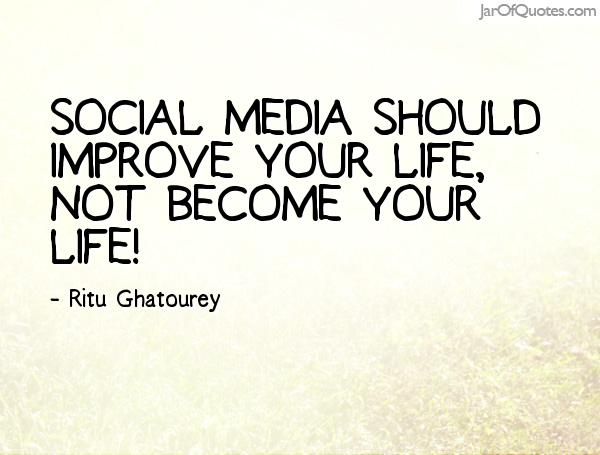
STRESS
Social media is a place where we often express our outrage about anything from substandard services to political issues. This allows us to let off steam, but turns our news feed into an endless stream of negativity.
In 2015, researchers at the Pew Research Center in Washington DC tried to find out whether social networks actually free us from negative emotions or, conversely, cause more stress.
Image copyright, Getty Images
Image caption,Studies show that mobile has a bad effect on the quality of live communication
A survey of 1,800 people showed that women are much more prone to stress from social networks than men. They called Twitter the biggest source of negativity, as it constantly reminds of unpleasant situations in other people's lives.
Twitter, however, was also an effective way to reduce the effects of stress: the more women used it, the less stressed they felt.
Interestingly, this effect was not observed in men. According to the researchers, they do not take social networks to heart as women do. Overall, the researchers concluded that social media use was associated with "comparatively lower levels of stress."
MOOD
Skip the podcast and continue
Podkast
SHO TS BULO
GOLD ISTORIA TIZHNYA, Yaku explain our magazine
VIPSISS
Kinets Podkast
In 2014 in 2014 in 2014 in 2014 in 2014, Austrian researchers found out that 20 minutes spent on Facebook, left users. than after browsing other pages on the Internet. Obviously, this was due to the fact that the use of social networks seemed to them a waste of time, scientists say.
According to researchers from the University of California, a good or bad mood can quickly spread between users of social networks.
Between 2009 and 2012, scientists analyzed the emotional content of more than a billion statuses from about 100 million Facebook users.
• Likes and shares can cost careers
Analysis showed, for example, that bad weather increased the number of negative posts by 1%. One negative post someone wrote while it was raining influenced 1.3 messages from friends in other cities where the weather was sunny at the time.
It's good that the funny messages had a strong impact. As the scientists found, each pleasant post inspired 1.75 posts written on a positive note.
Although whether such statuses increased the real mood of users, it remains unknown.
Anxiety
The researchers also tried to find out how social networks affect the overall level of anxiety, sleep and concentration.
A study published in the journal Computers and Human Behavior found that people who use seven or more networks have three times the overall level of anxiety as users of 0-2 platforms.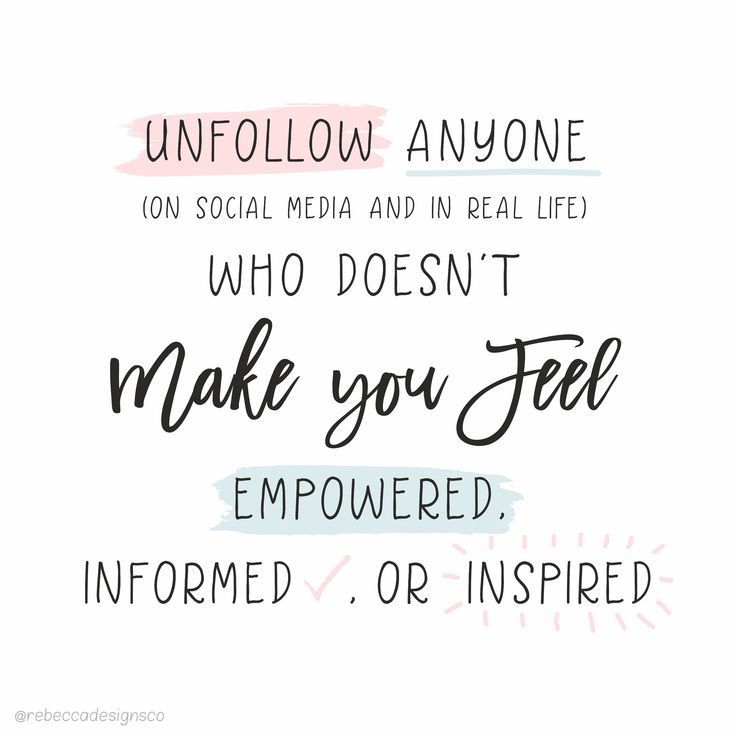
Image copyright, Getty Images
Image caption,The beauty of social media lies primarily in the fact that it perfectly mimics the pleasant sensations of the game.
A 2016 study conducted at the University of Babes-Bolyai in Romania on the relationship between social anxiety and social media use produced mixed results.
DEPRESSION
Although some past research has found a link between depression and net use, new research in this area suggests the opposite effect.
Two studies of more than 700 students found that symptoms of depression, such as low mood, feelings of inadequacy, and despair, are associated with the quality of online communication.
Those for whom virtual communication brought predominantly negative emotions had higher depressive symptoms.
A similar 2016 study of 1,700 people found that those who used multiple social media platforms were three times more likely to have depression and anxiety.
Among the reasons given by the researchers were, first of all, virtual bullying and a distorted view of other people's lives.
However, researchers are also looking into how social media can help identify symptoms of depression, which can help you seek professional help more quickly.
Commissioned by Microsoft, researchers surveyed 476 Twitter users and analyzed their profiles on the social network, paying attention to the style of messages, emotions, type of interaction with other users and signs of depressive behavior.
Using this data, they developed a questionnaire that, in seven out of ten cases, predicts the risk of depression even before the onset of the first symptoms.
- Researchers: Instagram is the worst social network for the psyche of young people
Last year, scientists at Harvard University and the University of Vermont developed a similar Instagram photo analysis tool that has the same efficiency.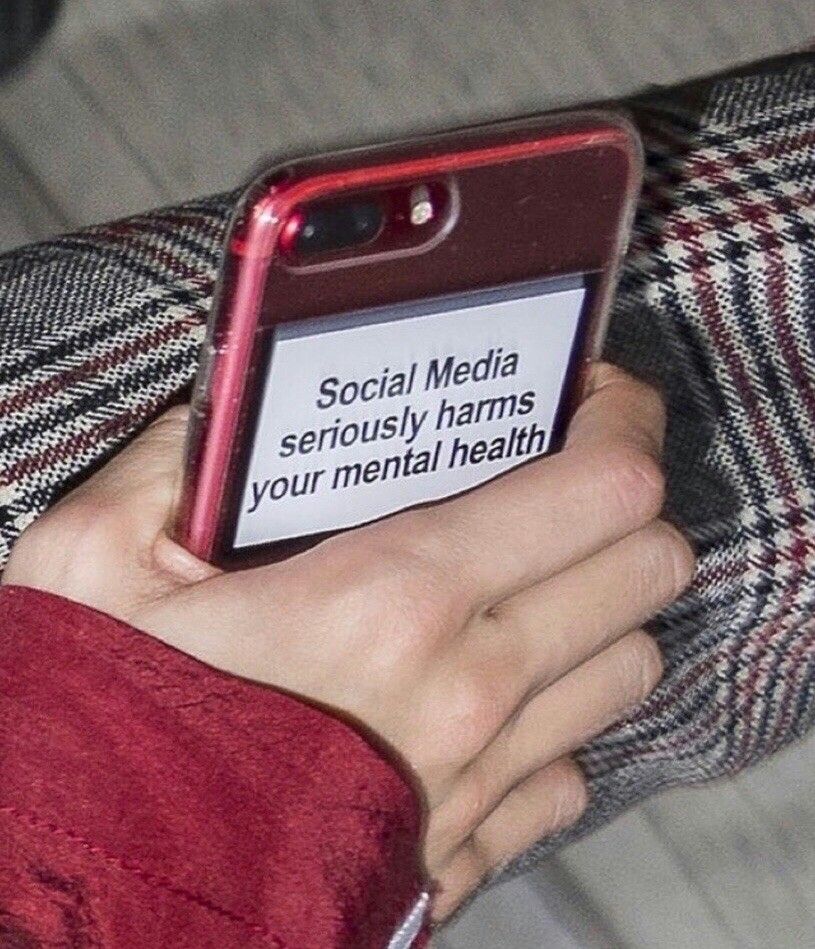 The study involved 166 network users.
The study involved 166 network users.
SLEEP
For most of history, people spent their evenings in the dark, and only in recent centuries has artificial lighting been added to our bedrooms.
Studies show that it suppresses the production of the hormone melatonin, which promotes sleep. The worst effect on it is blue light from the screens of smartphones and laptops.
So, the habit of checking the news feed on Facebook or Twitter before going to bed has a bad effect on the quality of sleep.
- Smartphones have identified the laziest and most active countries
Last year, researchers from the University of Pittsburgh surveyed 1,700 people aged 18 to 30 about how they use social networks.
Image copyright, Getty Images
Image caption,The worst time to use social media is before bed
Scientists have discovered that the blue light emitted by our gadgets plays a significant role in disturbing sleep.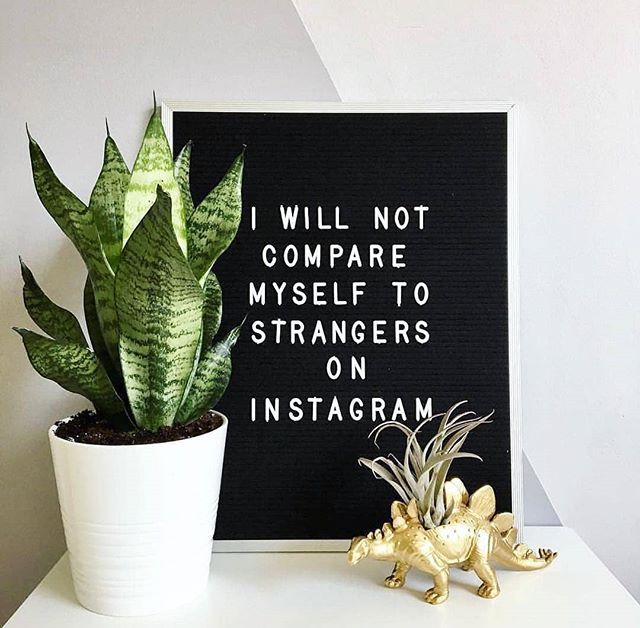
- Smartphones in bed do not disturb sleep
The worst influence was not the total time spent on the network, but the frequency of activities in it, which indicated a "compulsive habit" to constantly check for updates.
Researchers, however, have not definitively found out whether social networks cause sleep disorders or whether those who already suffer from insomnia spend more time on networks.
ADDICTION
Despite claims by several researchers that Twitter is more addictive than cigarettes and alcohol, compulsive web use has not been listed as a mental health disorder.
However, social media is changing faster than scientists can study it.
Some researchers pay attention to different types of obsessive behavior in social networks.
For example, Dutch scientists have recently developed their own scale to identify possible addictions.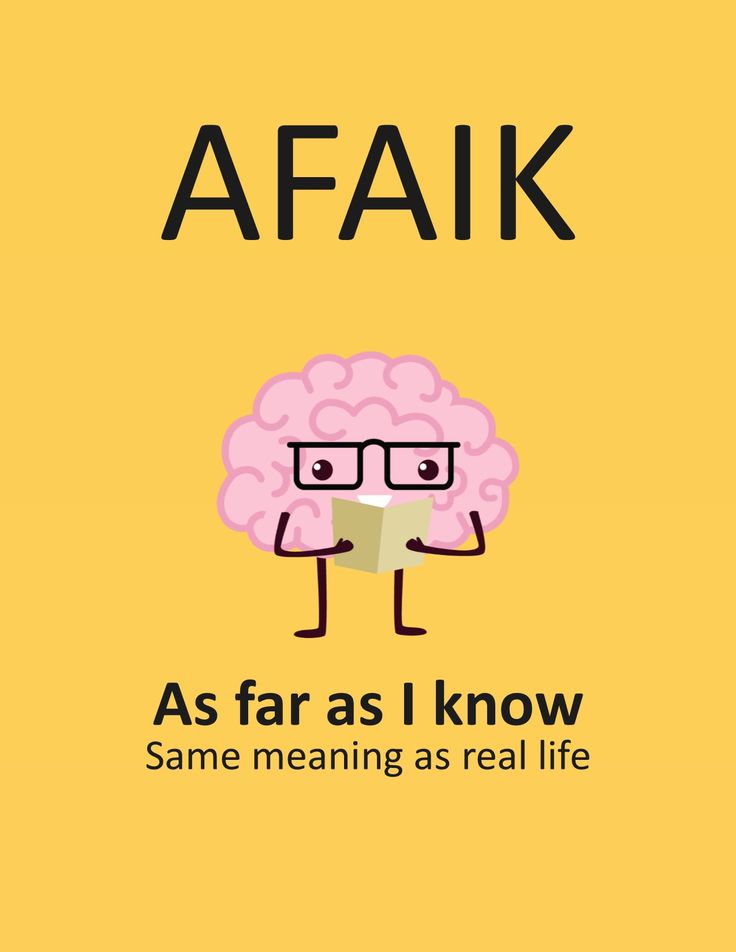
However, if social media addiction really exists, it can be considered a type of general Internet addiction, which is an officially recognized disorder.
In 2011, University of Nottingham researchers Daria Coussi and Mark Griffiths reviewed 43 previous studies in the field and concluded that social media addiction is indeed a mental disorder and requires professional help.
• Facebook will have a new feature to block posts
They found a link between excessive use of networks and relationship problems, poorer academic results and less participation in real communication.
According to scientists, alcoholics, extroverts and those who compensate for the lack of real relationships with networks are more prone to such addictions.
SELF-ESTATE
Women's magazines with photos of overly thin models, moreover processed in Photoshop, have long been recognized as a source of low self-esteem in young women.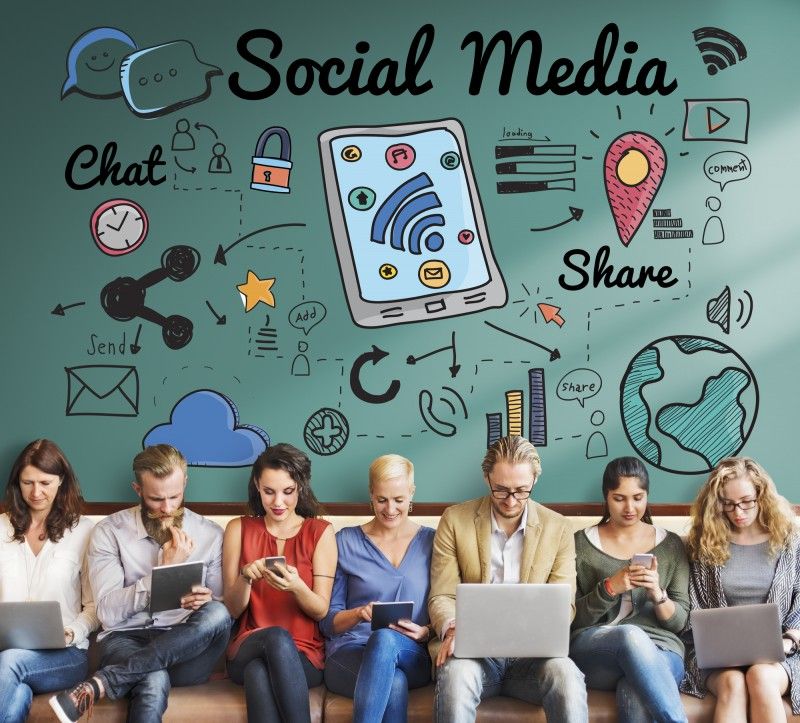 But now social media has begun to cause concern among some groups of activists.
But now social media has begun to cause concern among some groups of activists.
Special filters in them, as well as lighting and shooting angle, allow you to create unrealistic photographs.
Image copyright, Getty Images
Image caption,Viewing other people's selfies can be bad for self-esteem
According to a survey of 1,500 users by the charity Scope, more than half of young people aged 18-34 say that social networks make them feel themselves unattractive.
A 2016 study from Pennsylvania State University found that viewing other people's selfies lowers self-esteem, as users compare themselves to photographs of people at the happiest moment of their lives.
And women tend to negatively compare themselves to selfies of other women, researchers at Strathclyde University in Ohio and Iowa State University found.
However, not only selfies of other users have a bad effect on self-esteem. A survey of 1,000 Facebook users in Sweden found that, in general, women who spend a lot of time on the social network feel less happy and confident.
A survey of 1,000 Facebook users in Sweden found that, in general, women who spend a lot of time on the social network feel less happy and confident.
The researchers concluded: "Facebook users compare their lives with other people's career achievements and happy relationships, and such comparisons are often not in their favor."
However, one small study found that viewing your account instead of other people's photos can increase your self-esteem.
Researchers at Cornell University in New York found this out in an experiment in which one group of students sat in front of a mirror while another looked at their Facebook account.
Image copyright, Josh Rose / Unsplash
Image caption,In some cases, social media has a positive effect on mood and emotional well-being
The social network had a positive effect on participants' self-esteem. The researchers explain this by saying that mirrors or photographs force us to compare ourselves to social standards, while viewing our own Facebook profile allows us to control how we present ourselves to the world.
FEELING
In a study launched in 2013, scientists found that the more time people spent on Facebook, the less satisfied they were with life.
However, some other experiments have found the opposite. People with emotional instability are more likely to write about their feelings. As a result, the support they receive online helps them recover from negative experiences faster.
• How printers are spying on us
Although the issue is generally controversial, social media has a worse effect on the well-being of people suffering from social exclusion.
RELATIONSHIPS
If you've ever had a conversation with a friend and he or she took out their smartphone and started scrolling through Instagram, you've probably wondered how social media affects relationships.
This also applies to romantic relationships. Researchers from the University of Guelph in Canada asked 300 Facebook users aged 17-24 whether they "get jealous when their partner adds a stranger of the opposite sex as a friend.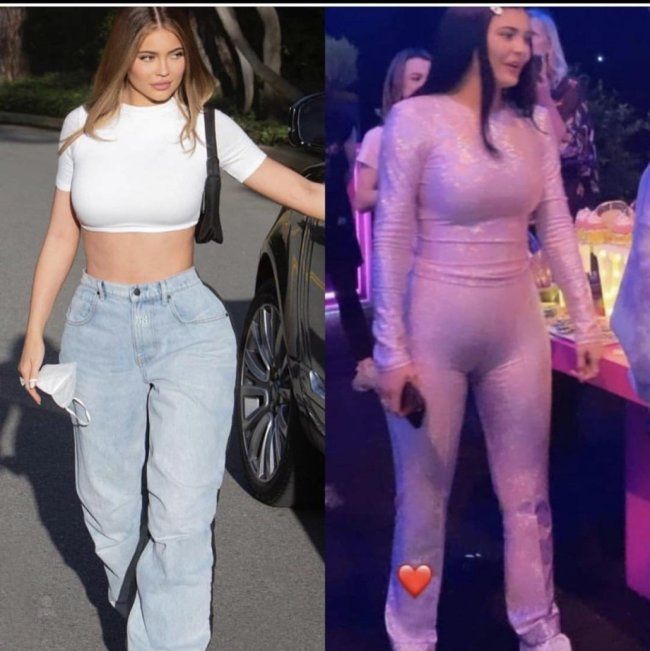 "
"
Image copyright, Getty Images
Image caption,A survey of 1,800 people found that women were much more likely to experience social media stress than men Facebook than men are more likely to experience jealousy.
The researchers concluded that "the social media environment itself contributes to this feeling, and also heightens concerns about the quality of their romantic relationship."
ENVY
In a study of 600 adults, about a third reported that social media evokes negative emotions in them - mostly frustration caused by envy.
The unflattering comparison of her life with the lives of other people provokes her, and above all this concerns photographs from travels.
Feelings of envy cause the so-called "envy spiral" when people start posting more photos that make them jealous.
However, envy is not necessarily a destructive emotion. It often makes us work harder, according to researchers at the University of Michigan and the University of Wisconsin-Milwaukee.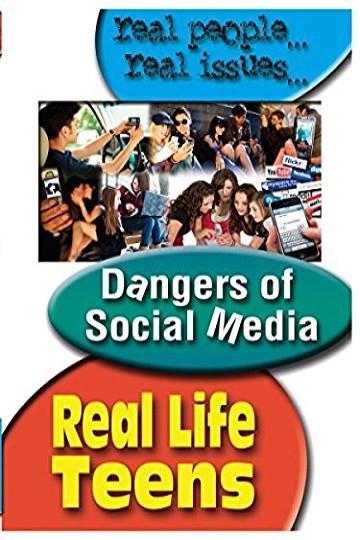
During the experiment, they showed 380 students photos and messages from Facebook and Twitter, which usually cause envy - a message about buying valuable goods, travel and engagement.
But the feelings that they aroused in the subjects, scientists characterized as "benign envy", that is, one that inspires one's own achievements.
LONELY
A study published last year in the American Journal of Preventive Medicine of 7,000 people aged 19 to 32 found that those who spent a lot of time on social media were twice as likely to feel socially isolated. They lack a sense of belonging to a group, as well as interaction with others and fulfilling relationships.
According to the researchers, for such people, social networks crowd out personal relationships and make them feel lonely.
Image copyright Jacob Ufkes / Unsplash
Image caption, When social media replaces face-to-face communication, people feel lonely and successful.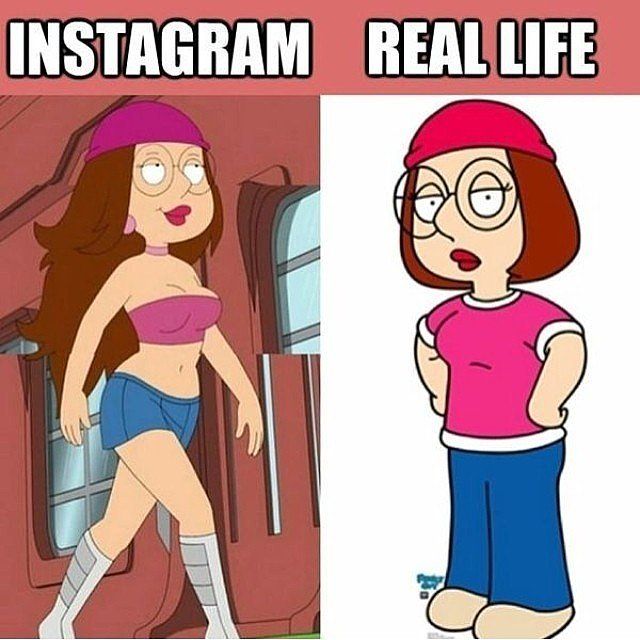 Such thoughts are increasingly exacerbating social exclusion."
Such thoughts are increasingly exacerbating social exclusion."
CONCLUSIONS?
It is clear that it is too early to draw final conclusions on many issues. However, it can be said that social networks have a very different impact on people, depending on many conditions, and above all, on their personality traits.
As with food, gambling, and many other modern temptations, excessive use of social media may not be desirable for some people.
But, on the other hand, it would be a mistake to say that they are an undeniable evil, because networks provide many advantages.
The life of the majority was rather cloudless, which allowed them to spend endless hours staring at a small screen. Entertainment, information, sometimes just a thoughtless filling of your life by scrolling through other people's pictures and thoughts that are given out on the mountain. Everyone tried to form their own digital world according to their patterns, meticulously controlled who got into it, and who was closed to entry. The illusion of information management turned into a game, there were no winners and losers, but only filling every day with one or another action. Being on social networks has become a habit. We, like Pavlov's dogs, have developed a conditioned reflex, which is fairly reinforced by the algorithms of social networks, because it is beneficial for their developers that we be present there, spend our time and bring unconditional income.
The illusion of information management turned into a game, there were no winners and losers, but only filling every day with one or another action. Being on social networks has become a habit. We, like Pavlov's dogs, have developed a conditioned reflex, which is fairly reinforced by the algorithms of social networks, because it is beneficial for their developers that we be present there, spend our time and bring unconditional income.
The conditioned reflex trap lies in the fact that we were addicted to “communication” on the net, and it was not by chance that I put this word in quotation marks, it is devalued in our time. It is impossible to have five thousand friends on a social network, just as it is impossible to communicate with strangers and receive an ersatz of ordinary emotions. Social addiction has become the scourge of our time, it changes our physiology, and this needs to be discussed separately and in detail.
Let's take a look at how many people on Earth are Internet users and how many people use social networks.
These are practically the same values, that is, most of those who have access to the network use social networks, and many simply disappear into them all the time. Look at how much, on average, people spend daily on social media.
Two and a half hours spent on social networks (total time online is just under seven hours a day! A full-time job, right?). To believe that one day people will be able to abandon real communication and completely move into the virtual space is not so difficult, looking at these numbers. But they have a certain flaw, which suggests that the situation will develop linearly and will not change in any way in the future. As if our fascination with social networks will remain exactly the same as before. But it's not! And I have good news for all of us, online communication is starting to crack at the seams, as it suddenly turns out to be a surrogate for the real world and cannot provide the same opportunities.
In the Russian realities of blocking social networks, it seems that the decline in interest in them is due to restrictions imposed by the state. Deputies love to brag about how effectively blocking works, and provide statistics to support their words. For example, Brand Analytics reports on social networks have become popular, which describe the change in the audience of authors and the amount of content that they produce.
Deputies love to brag about how effectively blocking works, and provide statistics to support their words. For example, Brand Analytics reports on social networks have become popular, which describe the change in the audience of authors and the amount of content that they produce.
The main thing is that the use of social networks is declining, and this can be explained by blocking - this interpretation lies on the surface. But I think that the situation is more interesting and deeper. For example, I have several social networks. Almost never was overly active on Facebook*, as I almost always received a negative charge. As if people used this platform to share their negative emotions. Many acquaintances who in real life gave the impression of adequate, healthy people, in this social network turned into those who constantly whine, complain about something, stigmatize someone and behave strangely. This is largely due to the fact that the algorithms of the network are built in such a way as to evoke maximum emotions in you, they slip you messages that should annoy you, and not necessarily in a pleasant way.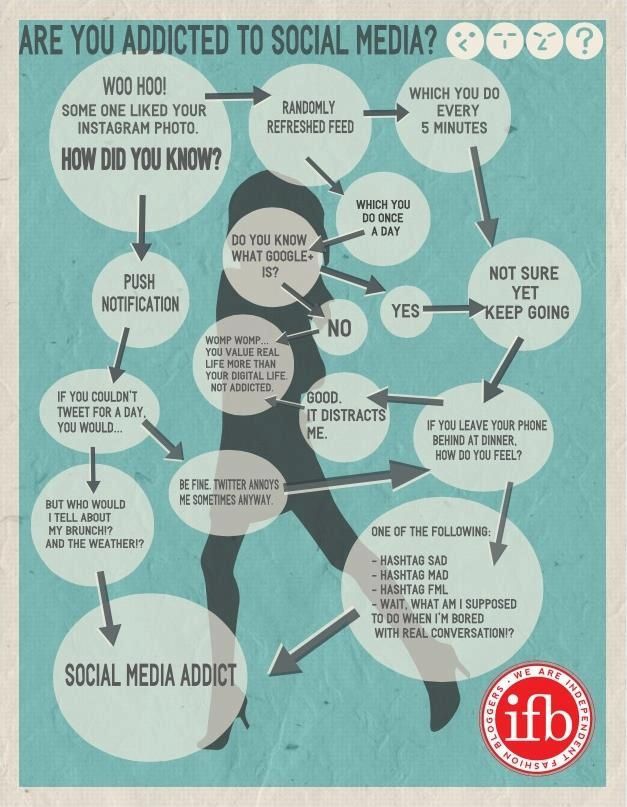
I was active on Twitter for a while, but then I stopped doing it, there was not enough time, and most importantly, the number of bots exceeded reasonable limits, there were too many of them. And for each message, there were dozens of responses from bots that promoted their agenda. Spending your life being a moderator on your own social media account is weird to say the least. The same Twitter was interested in the fact that as many people and bots as possible filled the pages of the network. The same Elon Musk is trying to find out how many bots have flooded Twitter, since the purchase price of this social network depends on it. There are clearly more than 5% of them, which is given by the social network itself as a kind of average estimate.
Perhaps he spent most of his time on Instagram (in Russia it is recognized as an extremist social network). A lot of photos from trips, the habit of sharing the beauty of the world around. In the tape I watched my acquaintances and friends, in total I spent 30-40 minutes daily on this activity. The position of Meta* with the permission to call for the murder of Russian citizens caused me a sharp reaction, I refused to be on this social network. And I don’t regret it at all, as a lot of time has been freed up.
The position of Meta* with the permission to call for the murder of Russian citizens caused me a sharp reaction, I refused to be on this social network. And I don’t regret it at all, as a lot of time has been freed up.
I registered with EyeEm, I even post photos there from time to time, I have an account in Russian Now. But that habit of posting something all the time just disappeared. External events have accelerated what was happening before, namely the restoration of order in my digital life.
It is impossible to be in several social networks at the same time, to conduct them in the first person. For this, stars and stars hire a whole staff of SMM specialists who manage social networks on their behalf, which, of course, discourages me. There were so many scandals when an SMM manager on behalf of his patron published something that caused a violent reaction, and the latter immediately denied what was said and said that completely different people run his social networks.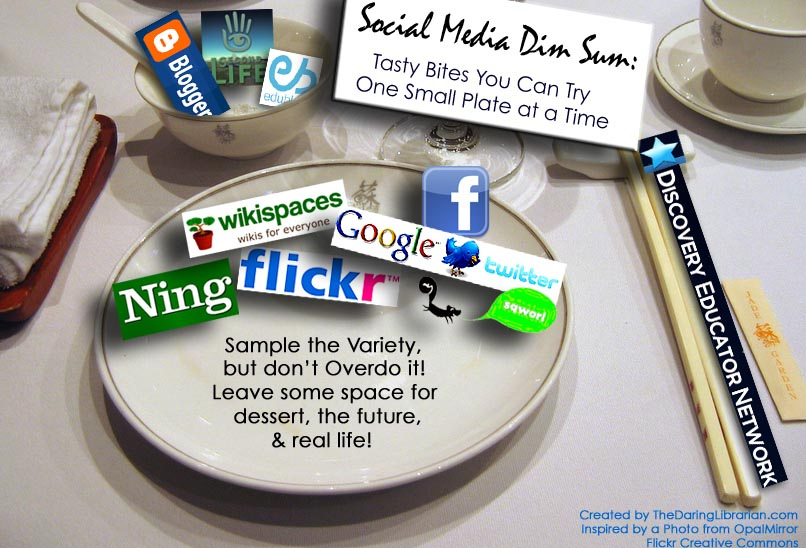 So name your accounts something else, do not indicate your name there, otherwise you get a strange picture that baffles everyone.
So name your accounts something else, do not indicate your name there, otherwise you get a strange picture that baffles everyone.
Of course, as part of my work, I have to browse social networks, look for information in different sources, and this is an everyday routine. But the interest in maintaining my accounts in different networks is lost for me, it takes too much time, and the benefits are not very clear. I initially made a decision for myself that a personal account cannot be a place for advertising and promoting some goods and services, that is, there was no commercial interest and no. This is my personal space in which I share my thoughts, observations, I do it from time to time. I used to find time to write on my blog, but then I abandoned this activity - when there is a choice between life or entering letters into the computer, I always choose the first one. You need to live in such a way that there is simply no time left for social networks!
Probably, for each of us, this is the search for balance, when you can spend time on social networks without taking it away from other interesting activities.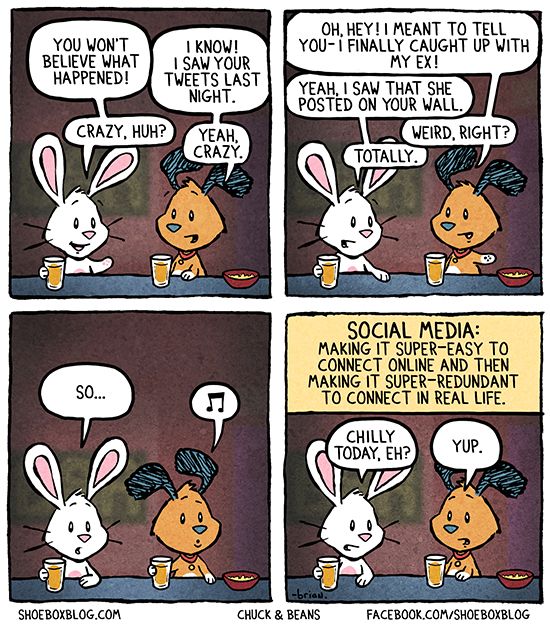 Awareness and rejection of wasting time in this way made it possible to read more books (and this is a separate pleasure), walks when you are not stuck on the phone screen and nothing annoys you. The heavens did not collapse, the world did not change, my communication with close friends and acquaintances did not suffer, it is increasingly moving into the plane of real contacts. It is impossible to grasp the immensity and constantly control what exactly happens in the lives of other people. And why? Keyhole peeping? I will never believe that you can be sincerely interested in the lives of dozens of different people and learn something about them every day.
Awareness and rejection of wasting time in this way made it possible to read more books (and this is a separate pleasure), walks when you are not stuck on the phone screen and nothing annoys you. The heavens did not collapse, the world did not change, my communication with close friends and acquaintances did not suffer, it is increasingly moving into the plane of real contacts. It is impossible to grasp the immensity and constantly control what exactly happens in the lives of other people. And why? Keyhole peeping? I will never believe that you can be sincerely interested in the lives of dozens of different people and learn something about them every day.
Social media is changing, it will lose popularity. I see from the example of my children that they abandoned their social networks without prodding, too little time for them, too much falsehood, which is not really needed. Their example is not indicative, but still characterizes the situation, their friends live in approximately the same paradigm. They quickly got their bearings and figured it out, refused to waste time on empty things, in some ways I envy them, since it took me a completely different time.
They quickly got their bearings and figured it out, refused to waste time on empty things, in some ways I envy them, since it took me a completely different time.
I am surprised to hear a question addressed to me: do you feel sorry for leaving your account there, do you have tens of thousands of subscribers there? The question is how do you realize the importance of this or that thing, for me most of these people are strangers, I can never know them. I don’t see any point in doing self-promotion, I always share my findings and what is interesting. But at the same time, I understand that I am becoming a product for the owners of each platform on which they earn. And I don’t even mind it, but every day I get more and more problems as a digital product, my data is sold, as a result, a huge amount of advertising is pouring on me and it is often distorted by social networks. There are many more minuses than the ghostly plus of the opportunity to tell something about yourself. Of course, if I traded advertising space, I would hold on to these subscribers, as bloggers do, who created their own fictional world of successful success.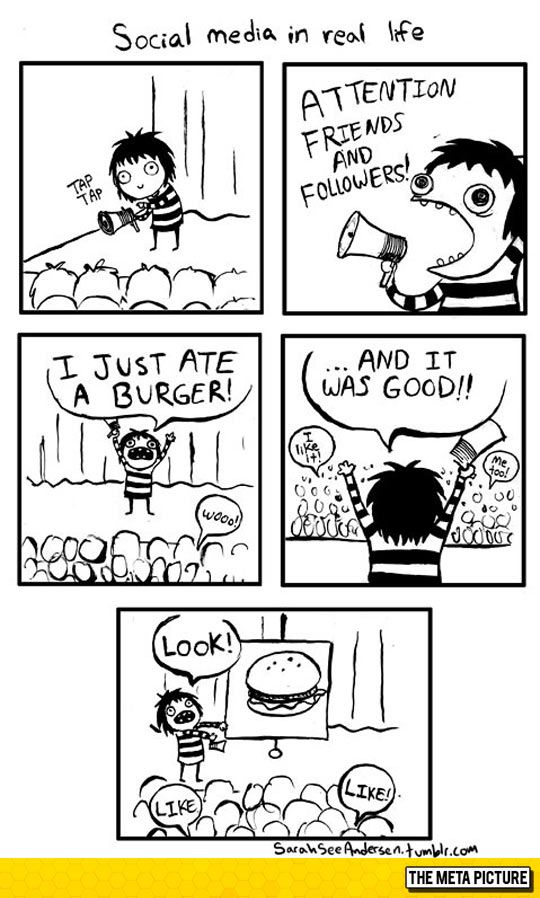 But for me it is not of interest in principle.
But for me it is not of interest in principle.
We are trapped in social networks, captivated by imposed ratings, likes and comments from strangers who praise or scold us. Since time immemorial, I have not reacted in any way to either praise or abuse, I care about such assessments only from people whom I know in everyday life and whose opinion I trust. I have no doubts that social networks will begin to lose their attractiveness, but it is another matter that they will fall gradually, under the influence of external factors. This will not lead to their disappearance, but the fact that our involvement in them, our fascination with them will undoubtedly pass. And this is to be welcomed.
We decided to ask how much time you spend on social networks, here's what happened.
Link to survey The results of the survey, albeit indirectly, confirm that people are trying to regain their real life, and not be content with a simulacrum in the form of social networks. It's funny how social media actually makes people antisocial.
